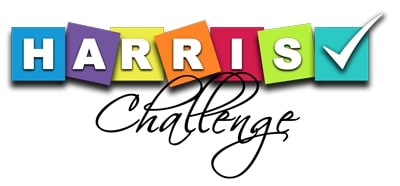More than thirty years ago, I decided radio needed an antidote to boring call-in contests.
There’s nothing entertaining about caller nine winning something, since 99% of your listeners will never pick up the phone to participate. That was more true in the pre-cellphone era, but it’s still valid today. Thus, radio bred an entire generation of “contest pigs,” people who went from station to station with no interest in the music or conversation, only in the prizes they could win. But it was no fun for anyone else.
This is still a problem for the industry. Companies that own hundreds of radio stations do simultaneous national contests where you have to text a keyword to some number and then be chosen at random from listeners in every state. How is that remotely appealing to all those commuters stuck in traffic tuned to your station? How does it help create listener loyalty?
Thus, I started doing the kinds of contests you could participate in by playing along in your car (where 80% of my morning show listeners were), even if you never called. Some of my favorites from that era included:
- Name That Cabbie, in which I had my sidekick Dave go to Washington’s National Airport and get taxi drivers on tape spelling out their names. When I played them back on the air, listeners had to guess how to pronounce them. We also had the drivers say, “No, that’s not it” or “Yes, that’s it, congratulations!” I could do this forever in DC because all of the cabbies were immigrants, so they didn’t have names like Jack Simpson or Ted Matthews. By the way, Dave would always bring along a couple dozen donuts to reward those guys, who sat in long cab lines for hours waiting to pick up fares, and were always happy to help us out — once they discovered he was not a government official.
- What’s Next, in which I’d play ten seconds or so of a classic rock song and listeners had to come up with the next line, word for word. This was a lot harder in the days before you could just Google the lyrics. More than once, I was surprised to discover I wasn’t sure what the line was!
- Mystery Products, in which I’d list the actual ingredients of a consumer product and you’d have to guess what it was. This seemed like a really clever idea, but I only did it for a few months because it turned out to be way too hard, especially for products whose chemical contents read like a row of the periodic table.
- Battleship. Yes, the board game. You had to imagine the pattern and guess where I’d placed the boats. Seems really stupid, but it was a big hit nonetheless.
- The Long Arm Of The Law, in which I’d give you one wacky law from somewhere in the USA and two I’d made up, and you’d have to figure out which was real.
- Rock and Roll Jeopardy. Before VH-1 actually produced a TV version, I’d been doing it on my show for several years, with multiple categories and questions — a precursor to what the Challenge eventually evolved into. I even had the three listener-contestants shout out “buzz,” “ding,” or “hey” when they knew the correct answer. Again, an enormous amount of fun.
- The Kevin Bacon Game, in which listeners would name a movie star and I’d try to connect them to Kevin Bacon in six moves or less, using only films they’d appeared in together (no TV or writing or other credits counted). I couldn’t do this today because I’m not as steeped in modern movie people as I was in those pre-2000.
I had a couple dozen of these games I rotated through the show, all of which only took a few minutes of airtime but got tremendous feedback from listeners, simply because of the play-along factor. Frankly, the prizes didn’t even matter, although advertisers got into it, too, so I ended up with some nice things to give away along with the usual concert tickets, movie freebies, or dinners. I do remember pissing off one sales person who wanted me to hand out $25 gift certificates for a jewelry store. I refused, explaining that’s not a prize, that’s a coupon. Unless you needed a new battery for your watch, there was nothing in the store that cost that little.
Then there were the ridiculous prizes.
I’d look in Chase’s Calendar Of Events and see that National Peanut Day was coming up. I’d contact the American Peanut Council (or whatever it was called) and ask them to provide a hundred pounds of peanuts that I could give to one listener. Almost every industry had a lobbying organization in that town that also did some promotion for its product, and they almost always came on board (I got to know the guy at the Snack Food Association so well, he had me pose for the cover of an issue of their monthly magazine!). Sometimes I went to the manufacturer directly, like the time Hostess was coming out with new strawberry-creme-filled Twinkies. When I called the woman who handled their PR and promised a bunch of free plugs on my top-show, she gladly sent over a pallet full of boxes, and I gave a thousand Twinkies to one lucky (?) listener.
One of my favorite ongoing prize suppliers was an art gallery/store that had a collection of genuine, certified cels from classic animated movies and cartoons. I’d give those away by playing audio clips from movies and asking listeners to identify them. Again, even if you never called in, there was still some entertainment value.

